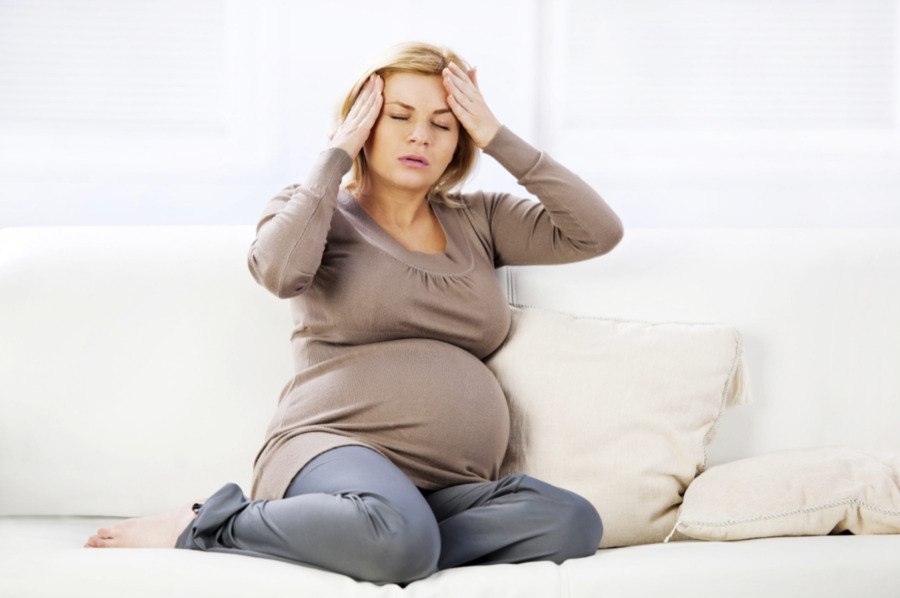Pregnancy is a remarkable phase in a woman’s life, offering her the opportunity to leave a lasting impact on the world by bringing new life into existence. It is a time filled with love, care, and the promise of nurturing a new generation. However, pregnancy also brings about significant changes, both physical and emotional, that require careful attention and support.
Page Content
Physical and Emotional Changes During Pregnancy
Physically, pregnancy transforms a woman’s body in profound ways. From the expanding abdomen to the hormonal fluctuations, every aspect of the body is affected. Emotionally, pregnancy can be a rollercoaster of feelings, ranging from joy and excitement to anxiety and fear. It is essential for women to recognize and embrace these changes, seeking support when needed.

The Importance of Self-Care During Pregnancy
During pregnancy, self-care becomes paramount as women navigate the physical and emotional demands of carrying a child. One crucial aspect of self-care is relaxation techniques, which help alleviate stress and promote overall well-being.
Relaxation Techniques
Breathing Techniques: Deep breathing exercises help women manage stress and anxiety by promoting relaxation and calmness. Techniques such as diaphragmatic breathing can be particularly beneficial during pregnancy, allowing women to connect with their breath and find moments of peace amidst the challenges.
Yoga: Prenatal yoga offers a gentle yet effective way to stay active and reduce stress during pregnancy. Through gentle stretches, breathing exercises, and meditation, women can strengthen their bodies and cultivate a sense of inner peace.
Meditation: Meditation provides a sanctuary for the mind, allowing women to quiet their thoughts and find moments of stillness amidst the chaos of pregnancy. Regular meditation practice can help reduce prenatal depression and anxiety, promoting emotional well-being.
Moderate Exercises: Engaging in moderate physical activity, such as walking or swimming, can help women maintain their physical health and prepare their bodies for childbirth. It is essential to consult with a healthcare provider before starting any exercise regimen during pregnancy.
Nutrition During Pregnancy
Proper nutrition is crucial for supporting the health and development of both mother and baby during pregnancy. Each trimester brings unique nutritional needs, with a focus on consuming a balanced diet rich in essential nutrients.
First Trimester: During the first trimester, women should focus on consuming foods rich in folate, iron, and calcium to support the early development of the baby’s neural tube and bones.
Second Trimester: The second trimester is a time of rapid growth and development for the baby. Women should prioritize foods high in protein, omega-3 fatty acids, and vitamin D to support fetal growth and brain development.
Third Trimester: In the third trimester, women’s nutritional needs increase as the baby continues to grow and develop. Foods rich in antioxidants, vitamin C, and magnesium can help support the baby’s immune system and overall health.
Hormonal Changes During Pregnancy
Pregnancy triggers a cascade of hormonal changes that play a crucial role in supporting the pregnancy and preparing the body for childbirth. Estrogen and progesterone levels rise significantly, while hormones such as oxytocin promote maternal bonding and facilitate labor.
The Role of Hormones
Estrogen: Estrogen plays a vital role in pregnancy, supporting the growth and development of the fetus and preparing the breasts for lactation. It also helps regulate the menstrual cycle and maintain the uterine lining.
Progesterone: Progesterone helps maintain the uterine lining and prevent early contractions, supporting the pregnancy throughout gestation. It also plays a role in breast development and milk production.

Postpartum Hormonal Changes and Postpartum Depression
After childbirth, women experience significant hormonal shifts as their bodies return to their pre-pregnancy state. These changes can sometimes contribute to postpartum depression, a serious condition characterized by feelings of sadness, anxiety, and exhaustion.
Addressing Postpartum Depression
Postpartum depression requires prompt attention and support from healthcare professionals. Symptoms may include persistent sadness, irritability, difficulty sleeping, and changes in appetite. Seeking help from a psychologist or mental health professional is essential for managing postpartum depression and ensuring the well-being of both mother and baby.
Conclusion
In conclusion, pregnancy is a transformative journey that brings about profound physical, emotional, and hormonal changes in women. Women can navigate this journey with strength, resilience, and grace by prioritizing self-care, including relaxation techniques and proper nutrition. Seeking support from healthcare professionals such as CHMC and loved ones is essential for addressing the challenges of pregnancy and ensuring a healthy outcome for both mother and baby.



